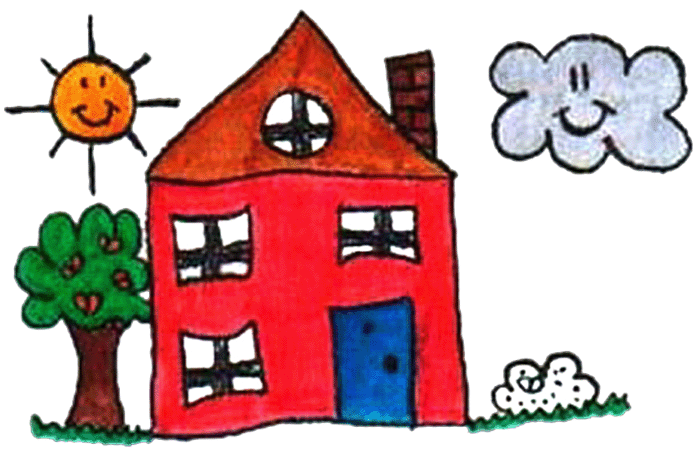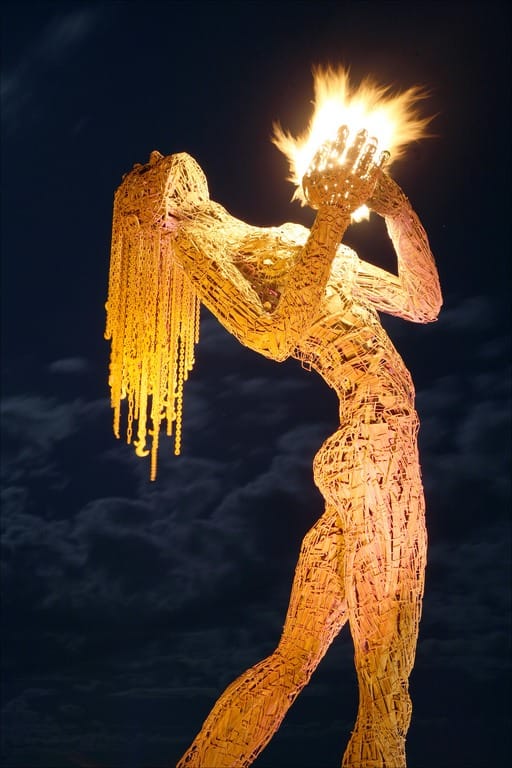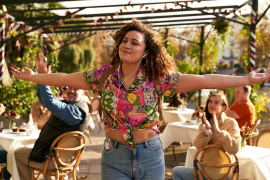by Sarah Liversidge
I live in a pretty incredible neighbourhood which boasts a community of lovely people who are actively engaged with their environment. We moved to the outer west of Melbourne in 2006 and at the time I knew nothing of the suburb or its locals, but it was a house we could afford in an area not too far from anything.
It might have been the setting down of mortgage roots, or an attempt to create a better environment for my kids but for the first time I began wanting to connect with the people in my community. And thankfully it turned out I wasn’t the only one.
Within a year or so we knew some neighbours and had local friends, there were playdates and afternoon teas. Someone started “last friday drinks”, a monthly soiree at alternating houses.
One afternoon, during an impromptu gathering at the playground, we noticed the local community house in the heart of the suburb was up for rent. Excited by the possibility of a public space to use, we agreed it was probably a good time for us to get organised.
That was five years ago and it was only this month that the official ribbon was cut and the house has been returned to the community. So I thought I’d share with you how to start your own community projects.
For information about starting a community group in Victoria, check out Consumer Affairs Victoria. You can find more broad info on community groups at Our Community.
You can search for grants on the Australian Government’s Grant Finder website. But you can also google or call your local council to find out what grants are available in your area.
Along the way we held a number of activities to increase our membership (or really, make more friends) and stay current. These included a couple of outdoor festivals, nature walks along the local creek, barbecues and other events.
Very early on we were able to negotiate with council for access to the yard surrounding the facility – and there we built a beautiful, bountiful Community Garden.
There have been many lessons for each of us to learn along the way. Some of them have been difficult, some easy. Here are a few that stuck out:
1. Be kind to your local council officers
Remember that council officers hear from a lot of angry residents and generally get the blame for the most ridiculous stuff. I have found, if you act like a grown up and speak with the respect that is deserved, council officers can be a wealth of knowledge and support to your project or goal.
2. Be prepared for the snail’s pace
Third tier government can move slowly. If you’re anything like me, this fact is the most difficult to come to terms with. I often wanted to push things faster than they could ever go. The result was that I got very frustrated (and a little bit rude – refer to point 1).
Don’t expect council to respond to your requests like your house is on fire, unless of course your house is on fire and it’s somehow their fault. They are excellent at grass roots operations – things like getting your bins emptied each week and mowing the footy club grass. The flipside is they can seem resistant to major change. They aren’t, it just takes a little time to get everyone moving in the same direction.
3. Have and hold your vision
It doesn’t matter what you want to achieve, be it a new playground, park or maybe some public art, but it’s important to stick to your vision and continue to work towards it. Find others that share your ideas; no doubt they will add to the endeavour.
4. Don’t expect everyone to do their equal share
Everyone has different priorities, and running a community group doesn’t have a uniform set of tasks to complete. Not everyone is available to do their equal share, nor is it practical to expect that, so try a guilt-free approach to volunteering. There will always be someone doing the majority of work. Try to make sure the load is shared around the best you can, and remember to take care of each other. It’s supposed to be fun!
5. Remember there is most likely a grant for what you’re trying to do
Fundraising can be arduous work and you can spend valuable volunteer hours with very little monetary return. There are a number of grants available to communities – in fact, it’s a multi-billion dollar pie. Try for your small slice of the action.
There are so many reasons to get involved in your local community but, most importantly, you can gain so much enjoyment from the people and places around you. The state of our immediate environment is very personal, and I’ve found for everything I’ve invested, I’ve reaped much more.










Great advice! I am intrigued by the grants. They might make talking to my eccentric neighbours worthwhile. 😉
We really connected to our local community through the kids’ activities – kinder, school, spoting clubs and so on. I often wonder if it would be so easy for people new to an area without kids. Also, we are in the middle of a fairly major community action trying to keep McDonalds out of the hills – will keep you posted on the success or otherwise!